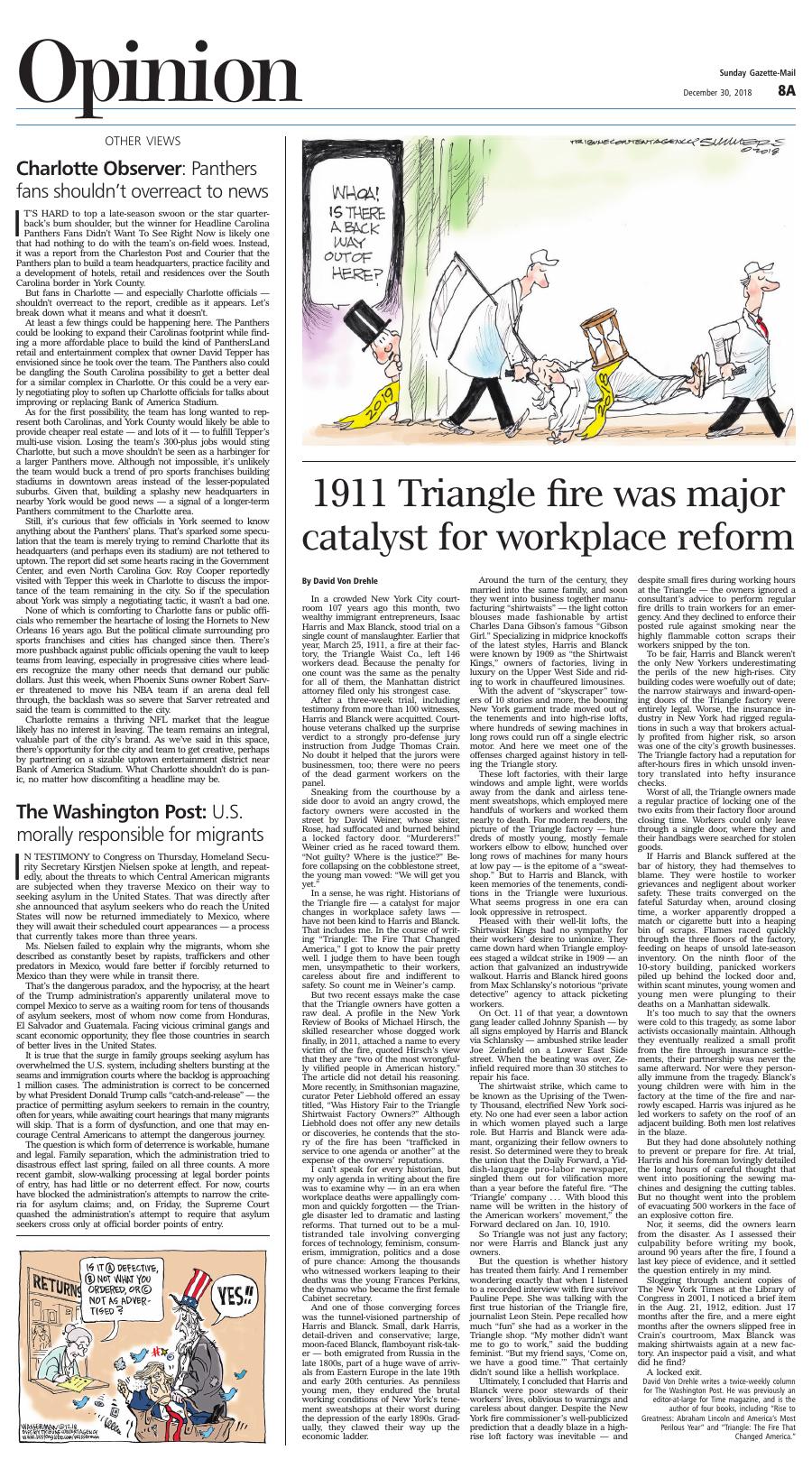Charles McElwee: Sowell's latest offering explores chance, privilege
In ‚ÄúDiscrimination and Disparities,‚ÄĚ the latest book by Thomas Sowell, who, at 88, is regarded as one of the most prominent African-American conservatives of the day, the author refers to differences in ‚Äúoutcomes found in economic and other endeavors [which] may not be due to either comparable disparities in [people‚Äôs] innate capabilities or comparable disparities in the way people are treated by other people [discrimination].‚ÄĚ
Rather, they may ‚Äúalso reflect the plain fact that success in many kinds of endeavors depends on prerequisites peculiar to each endeavor ‚ÄĒ and a relatively small difference in meeting these prerequisites can mean a very large difference in outcomes.‚ÄĚ
Differences in ‚Äúoutcomes‚ÄĚ among individuals and groups, Sowell says, can be due to luck, such as the kind of parents a person has, being born rich or poor, black or white, the kind of culture and geographic location (coastal or inland, river valleys or mountains) in which a child is reared, and his/her birth order among siblings.
Research indicates that, among National Merit Scholarship finalists, the first born was the finalist from five-child families more often than the other four siblings combined.
These disparities among siblings favoring the first born are also evidenced in higher IQ than the average IQ of later-born siblings, which can carry over into later life in many fields, including going on to higher education, completing four years of college and achieving greatness in a given field.
Sowell attributes the advantages of being the first born or an only child to ‚Äúthe undivided (greater) attention of the parents during early childhood development.‚ÄĚ
Qualitative differences in parental attention among social classes also account for disparities or differences in outcome, such as the number of words spoken by parents to their children: 2,100 words per hour by parents with professional occupations; 1,200 hundred words per hour by parents in working-class families; and 600 words by parents living in poverty.
Social pathologies have also accounted for differences in outcome, according to Sowell, such as fatherless children. ‚ÄúAs of 1960, two-thirds of all black American children were living with both parents. That declined over the years, until only one-third were living with both parents in 1995 ... Among black parents in poverty, 85 percent of the children had no father present ... By 2008, nearly 30 percent of white children were born to unwed mothers. Among white women with less than 12 years of education, more than 66 percent of their children were born to unwed mothers in the first decade of [this] century.‚ÄĚ
‚Äú[A] study of American prison inmates found that most were raised either by a single parent (43 percent) or raised with neither parent (14 percent) ... [C]hildren who had a parent who was imprisoned ended up in prison themselves several times more often than members of the general population.‚ÄĚ
Group preferences can also be relevant to economic and social outcomes. Research revealed ‚Äúthat black students in affluent Shaker Heights [Cleveland] spent less time on their school work than their white classmates did, and spent more time watching television, that was their revealed preference.‚ÄĚ Data from Australia revealed that ‚ÄúChinese students ... spent more than twice as much time on their homework as white students did [and, therefore, we should not be surprised] that Asian students in general tend to do better academically than white students in general ...‚ÄĚ
Another manifestation of group preferences or differences in what people want to do as portrayed by Sowell is the difference between Asian-American youngsters and black youngsters in their interest in playing basketball that may have something to do with the dearth of Asian Americans among professional basketball players.
Decisions made by individuals themselves also affect outcome. Thus, ‚Äú[w]hen more than three-quarters of all college degrees in education go to women and more than three-quarters of all college degrees in engineering go to men, the statistical predominance of women in teaching and men in engineering cannot automatically be attributed to employers‚Äô biases,‚ÄĚ according to Sowell. He represents that ‚Äúthe cause of a given outcome is an empirical question, whose answer requires untangling many complex factors, rather than simply pointing dramatically and indignantly to statistical disparities in outcomes, as so often happens in politics and in the media.‚ÄĚ
Stretching over many reader-friendly pages of attributing differences in outcomes among persons and groups of them to likely factors other than discrimination or nature, Sowell represents, in a concluding chapter, that many people expect discussions of economic and social disparities to end with ‚Äúsolutions ‚ÄĒ usually something that the government can create, institutionalize, staff and pay for with taxpayers‚Äô money.‚ÄĚ
The goal for Sowell ‚Äúis entirely different ... to provide enough clarification to enable others to make up their own minds about the inevitable claims and counter-claims sure to arise from those who are promoting their own notions or their own interests.‚ÄĚ By way of emphasis, Sowell notes that ‚Äú[t]here has never been a shortage of people eager to draw up blueprints for running other people‚Äôs lives.‚ÄĚ
Charles McElwee is a ¬“¬◊ńŕ…š lawyer.




















































































